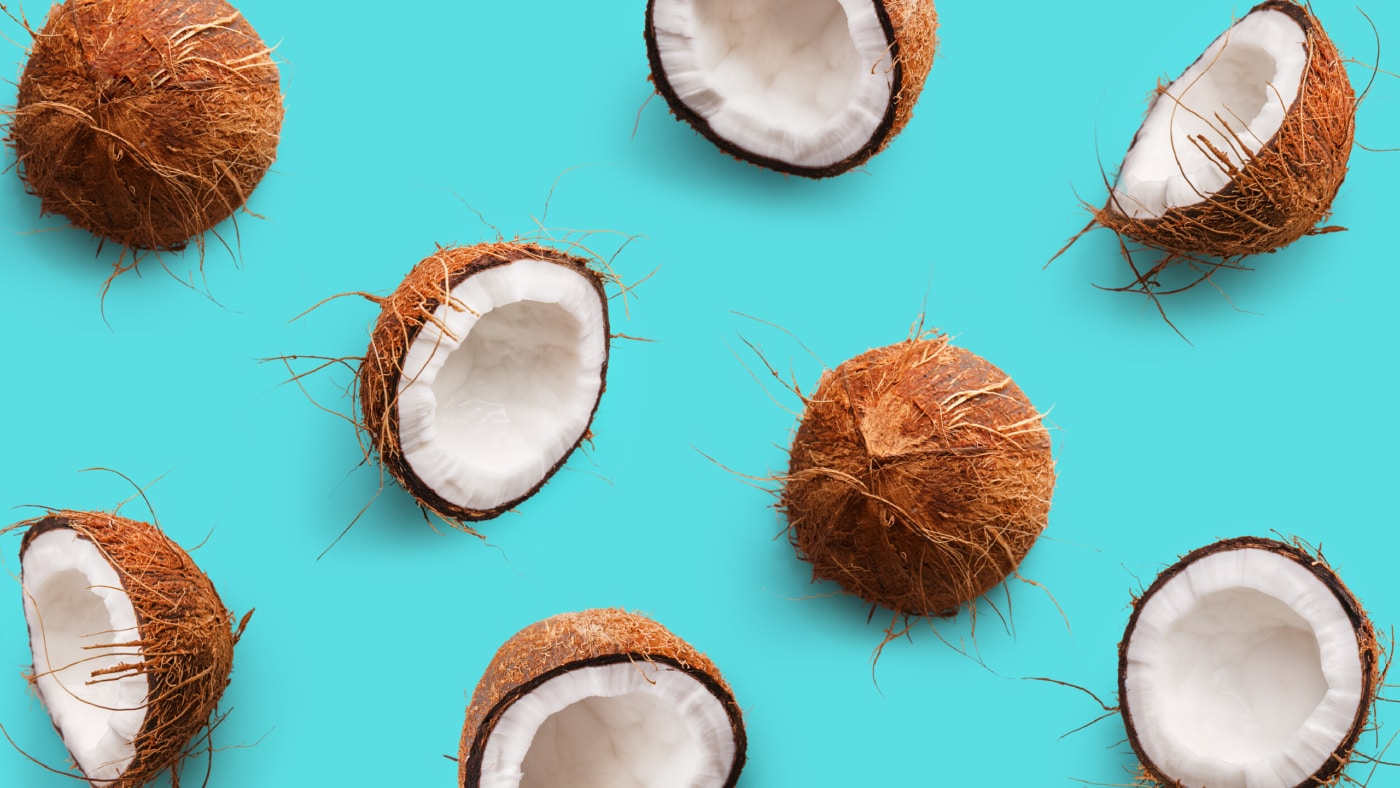Cannabis-infused coconut oil is quickly gaining popularity. But, is it more effective than butter? Why is coconut oil the best carrier fat to use with cannabis? Why is it necessary to use oil at all? Here’s why cannabis-infused coconut oil is such a healthy and powerful medicine.
Bioavailability
Compounds in cannabis are fat soluble. What does that mean, exactly? They break down in fat rather than water. This means that in order to reap the benefits of dietary cannabinoids, you’ll need to consume them with some fat. Coconut oil is superior for nutrient absorption. This is true not only for cannabis but for other fat-soluble nutrients as well. Vitamin E and beta-carotene are two examples. In fact, when you purchase nutritional supplements, opting for liposomal (fat-based) delivery systems can dramatically enhance the total amount of nutrients you actually absorb. When you combine cannabinoids with fat, the fat helps the cannabinoids travel through your digestive tract where they will eventually be broken down and released for your body to use.
Improved binding
The high saturated fat content in coconut oil provides ample binding opportunities for cannabinoids. Coconut oil contains around 90% saturated fat, which is far superior to olive oil (15%). (But, don’t worry! This fat won’t clog your arteries or put inches on your waistline. This topic is discussed in detail below.) Since cannabis is fat-soluble, the higher the quality of the carrier fat, the better the extraction will be. The abundance and purity of the fat in coconut oil gives cannabinoids like THC and CBD have plenty of material to work with. This means that infused coconut oil provides the greatest bang for your buck.
Different types of fat
Different fats come in different shapes. Coconut oil contains an abundance of saturated fats of unique quality. Specifically, coconut oil is high in medium-chain fatty acids (MCFAs). Other oils, like canola and sunflower oil, are primarily made of long-chain fatty acids (LCFAs). The body can break down the MCFAs in coconut oil much more easily than it can those of LCFAs. In fact, LCFAs require special enzyme proteins to break them down. Rather, MCFAs are directly metabolized into energy by the liver. This means that your body can burn those fats and put them to use right away. Liver metabolism makes for a stronger psychoactive experience. When consuming cannabis via an edible or infused oil, greater amounts of THC is converted to the psychoactive metabolite 11-hydroxy-THC. This makes the edible cannabis much stronger than smoked or vaporized cannabis. 11-hydroxy-THC crosses into the brain more easily than THC. Using coconut oil or other products that contain medium-chain triglycerides (MCT oils) triggers a relatively rapid release cannabinoids when compared to other oils. It also limits the fat stored on your waistline. Coconut oil gives you a quick energy boost without forcing your body to expend energy to free up the fat for use. When using other oils like canola, you’re more likely to store that oil as fat and it will take longer for your body to metabolize.
3 Benefits of coconut oil
There are a few other reasons to choose coconut oil. Not only is it a rich source of metabolism-boosting medium chain fatty acids, but some of these fats have specific health benefits, including,
1. Lauric acid
Lauric acid is a medium-chain fatty acid with antimicrobial properties. If you’re a fan of cannabis topicals, using slaves or creams with a coconut oil base provides natural protection against pathogens and infection. Lauric acid also promotes balanced cholesterol levels, making it a heart-healthy fat.
2. Caprylic acid
Caprylic acid is another MCFA with anti-microbial properties. Specifically, caprylic acid is anti-fungal. Research as early as 1949 found that this fat contained a natural fungicide, which could be beneficial for both topical and oral use. The over half-century old patent cited above found that the fat could be useful in treating mycotic infections on living organisms.
3. Vitamin E
Coconut oil contains small amounts of vitamin E, which is an antioxidant that is excellent for skin and hair. While the oil itself is not the best dietary source of the vitamin, it does help the body absorb vitamin E more readily. Including more coconut oil in your diet helps ensure that your body is making the best use out of the phytonutrients that you consume on a daily basis.








































